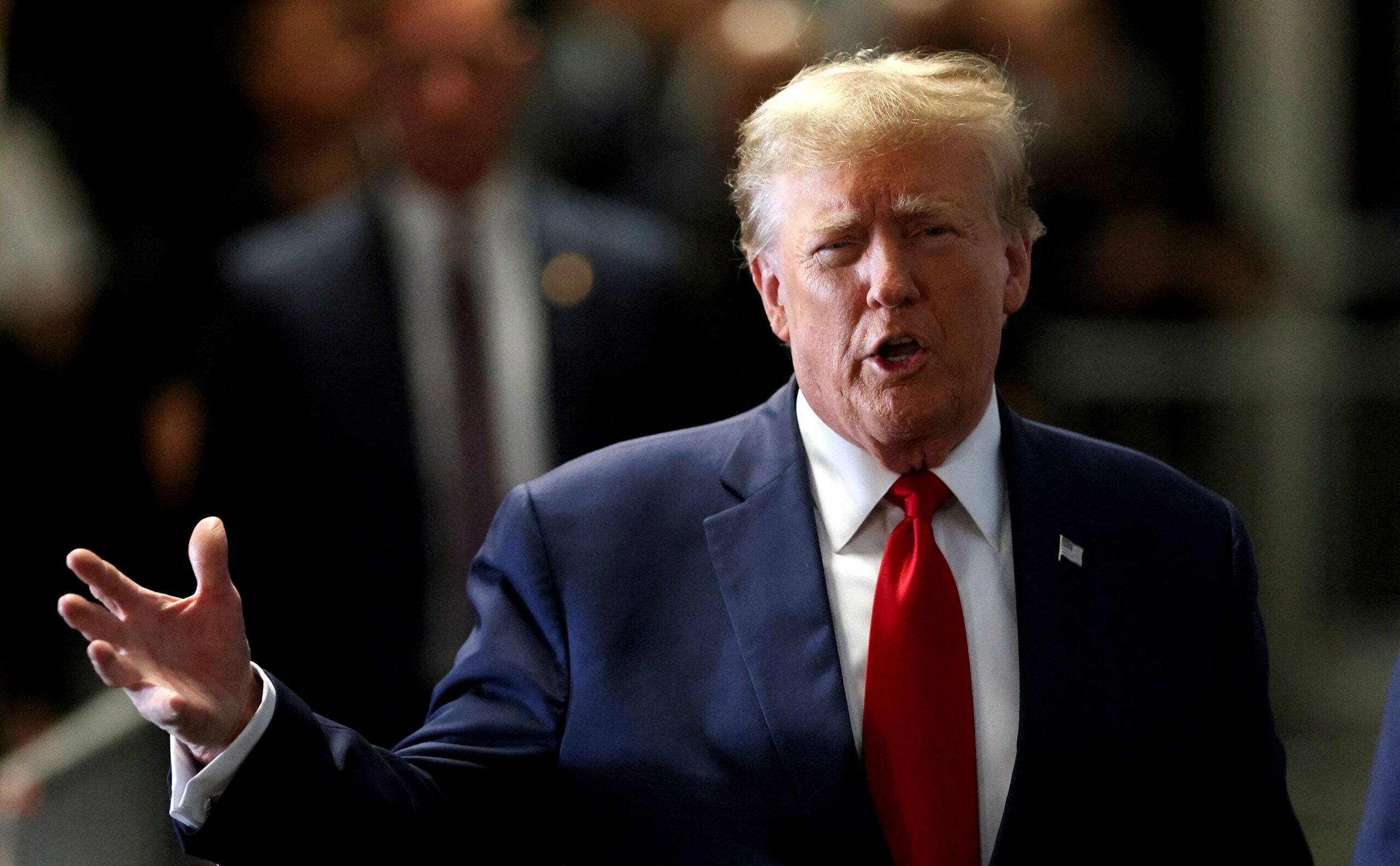In the coming months, former President Donald Trump will face the unique challenge of campaigning amidst ongoing legal battles. Trump has previously attended various court dates, but as his criminal trial in Manhattan commences in late March, he may have to juggle court appearances with his campaign for the GOP nomination.
On Thursday, we got a glimpse of this unusual blend of criminal trial and presidential campaign at a key hearing in the New York criminal case. Trump had the option to attend a hearing in Georgia, where District Attorney Fani Willis, who is overseeing his election interference case in the state, faces allegations of misconduct. However, he chose to attend the New York hearing, where he continued his pattern of manipulating the media spectacle outside court by discussing his criminal prosecutions and political rivals.
Trump’s comments often revolve around themes of political persecution, crime-ridden cities, and his strong polling. He insists he is not guilty of crimes in all four of the criminal cases he’s facing, often repeating variations of “this is not a crime” as a mantra.
The case in question, led by Manhattan District Attorney Alvin Bragg, pertains to hush-money payments made to suppress three separate, negative stories before the 2016 election. These payments were made to a former Trump Tower doorman, a former Playboy model, and adult-film actress Stormy Daniels. Trump has denied all allegations related to these payments.
Trump is now accused of 34 counts of falsifying business records and misrepresenting the payments to influence the 2016 election. He often claims that his four separate criminal trials are a coordinated “election interference” scheme, a claim that is widely regarded as false and unfounded.
Trump is currently leading in the race for the Republican nomination. Despite his legal troubles, his base has rallied around him, and his rivals have struggled to gain traction. Trump has often prioritized court hearings over campaign events, a choice that has seemingly not affected his standing in the polls.
Trump’s presidential campaign is built around two main pillars: seeking retribution for his 2020 loss, which he still does not accept, and advocating for stricter border policy. He often combines these two themes in his speeches, blaming crime rates on migrants and criticizing the Biden administration’s handling of the border crisis.
Trump’s claim that he paid $300 million in taxes “over the period of time” is unverifiable due to his persistent refusal to release his tax returns. It is known that there were years in which he paid no federal income tax due to claimed massive losses from previous years.
As Trump’s legal battles continue to unfold alongside his political campaign, the coming months promise to be a unique chapter in American politics.

